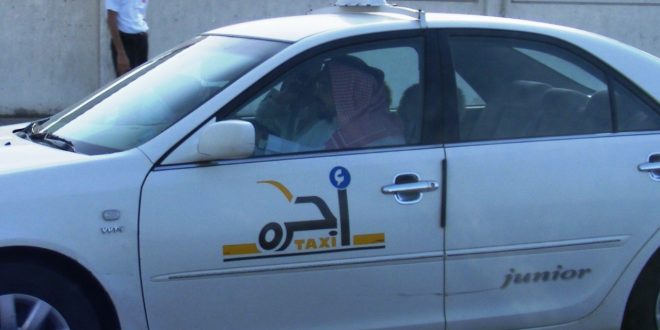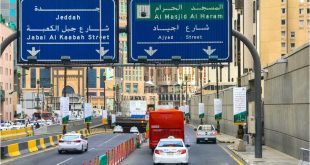Taxi services from Madinah to Makkah have long been an integral component of pilgrims and travelers completing Hajj and Umrah pilgrimages, providing essential transportation infrastructure services that enable their spiritual pilgrimages. Now with technological innovations shaping transportation systems worldwide, these Taxi From Madinah to Makkah may see major transformations that improve efficiency, convenience and sustainability for both pilgrims and locals.
Taxi services between Madinah and Makkah cannot be underestimated in their importance for travelers, providing millions of pilgrims an effortless experience during religious pilgrimages. But due to various technological and societal developments that are changing the face of Taxi From Madinah to Makkah in this region, their future trajectory could change significantly.
Current Scenario
At present, taxi services between Madinah and Makkah operate using conventional means; manual booking processes and communication are the norm. While these services have proven reliable over time, modernizing and optimizing transportation system requirements is becoming increasingly essential to meet the ever-increasing pilgrim population and tourism.
Technological Advancements in Taxi Industry
The taxi industry is experiencing rapid innovation through technological solutions designed to maximize passenger experiences while streamlining operations for service providers. Ride-sharing apps allow commuters to book rides easily and track routes, make cashless payments, thereby streamlining processes and minimizing logistical complexities. Meanwhile, electric taxis represent an essential step toward eco-friendly transport alternatives, reduced carbon emissions, and sustainable mobility practices within regions.
Impact of Modernization on Taxi Services
Modernizing taxi services brings many benefits for both service providers and customers, such as greater convenience, increased accessibility, and cost-savings. By harnessing modern technologies to streamline operations and optimize travel routes more effectively. Furthermore, sustainable practices help preserve local environments while supporting global efforts against climate change and supporting green initiatives.
Taxi Services in the Region Facing Difficult Challenges
Although modernizing taxi services is making progress, several challenges still stand in their way of being fully implemented and expanded efficiently. Restrictive regulations and licensing obstacles often create significant hurdles that require comprehensive reforms to create a more streamlined regulatory framework; additionally, competition from alternative modes such as private car rentals and public transportation intensifies this competitive environment, forcing taxi services to strengthen their value propositions and differentiate themselves in order to remain viable in today’s marketplace.
Future Prospects and Innovations in Taxi Services
Cheapest Rent a Car in Jeddah offer unprecedented opportunities for innovation that promise to revolutionize pilgrims and travelers’ transportation experience. Development of autonomous taxi services holds enormous promise in improving operational efficiencies, increasing safety standards and decreasing manual intervention needs; furthermore, incorporating artificial intelligence (AI) can personalize customer experiences, anticipate passenger needs and optimize travel routes, ultimately improving service delivery quality and increasing customer satisfaction levels.
Taxi Services and Cultural and Religious Context
Due to the cultural and religious significance of the region, taxi services must cater for each traveler’s unique requirements and sensibilities to provide a seamless and respectful journey for those undertaking spiritual pilgrimage journeys. Upholding cultural values, customs, traditions while providing high-quality transportation services remains key in upholding spiritual sanctity and maintaining significance of pilgrimage experiences.
Sustainable Development and Green Initiatives within the Taxi Industry
Given rising environmental concerns, taxi services have increasingly adopted eco-friendly initiatives and practices to lessen their environmental footprint. Electric taxis, eco-friendly operational protocols and renewable energy sources all can play an integral part in creating more eco-conscious transportation ecosystems in which to operate services.
Shifting towards Shared Mobility and Collaborative Transportation
Future taxi services anticipate a gradual transition towards shared mobility and collaborative transport models that promote resource optimization while alleviating traffic congestion. By encouraging ride sharing initiatives and developing partnerships between various stakeholders in the transportation sector, taxi services will better be equipped to cater to modern travelers while offering cost-effective yet socially responsible solutions for transportation solutions in their community.
Integrating Customer Feedback and Experience for Continuous Improvement
Customer-centricity has become the hallmark of success for taxi services today, so the incorporation of customer feedback and experiences is essential to their ongoing improvement and enhancement. By seeking customer insights, preferences, and suggestions in taxi services they can adapt them to meet clientele expectations as they change; creating customer loyalty that lasts.
Infrastructure Developments to Facilitate Seamless Connectivity
Infrastructure developments must design and construct efficiently and in order to create seamless connectivity between Madinah and Makkah, thus improving overall accessibility and mobility of commuters – creating a more accessible transportation landscape in Madinah and Makkah. By investing in robust transportation networks with well-paved roads, modern terminals, and efficient traffic management systems. This investment can create seamless mobility solutions and foster greater connectivity and accessibility between Madinah and Makkah.
Potential Socio-Economic Implications of Taxi Services in the Future
Taxi services hold great promise in their capacity to create socio-economic benefits, including job creation, economic empowerment and stimulating local businesses. By creating an enabling environment for entrepreneurial ventures and encouraging the expansion of small enterprises in transportation services, taxi services have the power to contribute significantly towards overall regional socio-economic development while simultaneously strengthening local communities while creating long-term economic security.
Taxi Transportation requires additional safety and security precautions for reliable operation
Security remains of utmost importance in taxi transportation, necessitating stringent safety protocols, stringent compliance with applicable regulatory bodies, and comprehensive risk management strategies. Implementing advanced safety measures, performing regular vehicle maintenance checks, and creating a culture that adheres to stringent safety standards can inspire confidence among passengers for a smooth travel experience.
Community Engagement and Local Empowerment Initiatives
Community engagement and local empowerment initiatives play a pivotal role in creating a sense of inclusivity and shared responsibility in the transportation ecosystem. By actively engaging local communities in decision-making processes, promoting cultural awareness programs, and offering skill development services, taxi services can facilitate sustainable socio-cultural harmony within their services’ respective regions.
Conclusion
As Madinah to Makkah taxi services continue to develop, harnessing the transformative potential of technological innovation, sustainable practices and customer centricity remains paramount to creating an efficient, accessible, environmentally responsible taxi system that upholds its cultural heritage while fulfilling pilgrims, tourists, local communities, and the international traveler alike. Leveraging advanced technologies, cultural sensitivity and community involvement; taxi services will continue to remain relevant by upholding their heritage while simultaneously creating a transportation ecosystem which meets pilgrims, tourists and local communities needs simultaneously.
FAQs
1. What are the primary challenges involved with taxi services between Madinah and Makkah?
Maintaining regulatory compliance and responding to competitive pressures are among the primary challenges confronted by taxi services in this region.
2. How are autonomous taxi services contributing to the future of transportation in this region?
Autonomous taxi services promise greater operational efficiencies, safety measures, and reduced manual intervention – creating an advanced transportation environment.
3. What initiatives can taxi services take to promote environmental sustainability?
By adopting electric taxis, implementing eco-friendly operations practices and adopting renewable energy sources into their operations, taxi services can make a substantial impactful contribution towards environmental conservation efforts in their regions.
4. How can community engagement initiatives benefit the local transportation sector?
Community engagement initiatives promote inclusivity, cultural awareness and skill development – contributing to the sustainable growth and development of local transportation ecosystems while strengthening communities.
5. What measures must be taken to protect passengers who utilize taxi services?
Safety protocols, regular maintenance checks, and adherence to comprehensive safety standards are vital elements in instilling trust with passengers and guaranteeing an enjoyable transportation experience.
 Latest News | The Blogger Zone
Latest News | The Blogger Zone




